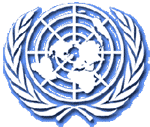
| UN Adopts Indigenous Rights Declaration | 18 September 07 |
 The UN General Assembly adopted September 13 the Declaration on the Rights of Indigenous Peoples, despite opposition from Canada, New Zealand, the US and Australia. Eleven countries abstained from the vote. The UN General Assembly adopted September 13 the Declaration on the Rights of Indigenous Peoples, despite opposition from Canada, New Zealand, the US and Australia. Eleven countries abstained from the vote.The non-binding declaration sets out global human rights standards for indigenous populations. Canada's UN ambassador, John McNee, said Canada had "significant concerns" over the declaration's wording on several provisions, in particular an article calling on states to obtain prior informed consent with indigenous groups before enacting new laws or administrative measures. Article 26 of the declaration states: "Indigenous peoples have the right to the lands, territories and resources which they have traditionally owned, occupied or otherwise used or acquired." Assembly of First Nations National Chief Phil Fontaine said the government is betraying Canada's worldwide legacy as a protector of human rights by going against a declaration Canadians helped draft. "In our view, it's a stain on Canada's reputation internationally," said Fontaine. Visit the UN Declaration on the rights of indigenous peoples pages View September 13, 2007 BBC News article View September 13, 2007 CBC News article View September 13, 2007 Reuters article View September 13, 2007 Agence France-Presse article View previous Manitoba Wildlands news items: August 15, 2007 - UN Focuses on Declaration of Rights December 18, 2006 - UN Delays Indigenous Rights Declaration Sources: CBC, Reuters
|
|
